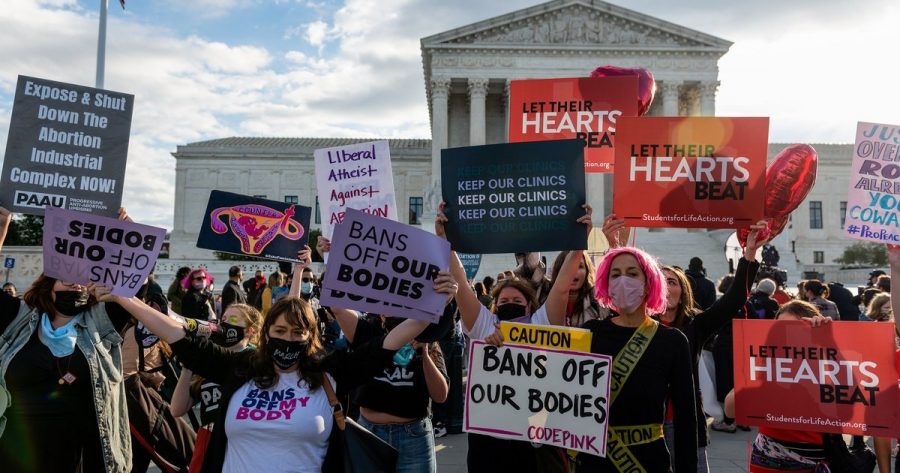Will Roe v. Wade be overturned?
December 1, 2021
For the first time since 1992, the court case Roe v. Wade has been challenged in a big way. The Supreme Court is arguing on whether to reverse the decision made by the case: that a woman should be able to have an abortion up until fetal viability, the time when a fetus can live outside of a womb.
The argument was introduced by the case Dobbs v. Jackson Women’s Health Organization, in which Mississippi lawmakers have banned abortion after 15 weeks without exception. This law violates the legal precedent set by the 1973 Roe v. Wade case, which set the limit at 22 to 24 weeks. Mississippi is now asking the Supreme Court to let states make their own laws regarding abortion, and subsequently reverse the ruling of Roe v. Wade.
So, what does this mean for abortion in America? Six out of the nine Supreme Court justices have supported anti-abortion measures in the past and are likely to vote for the case to be overturned. The court has potential to give abortion rights to the state without completely overturning Roe, but this would still require significant changes to the ruling, especially in regards to fetal viability.
Outside of the SCOTUS building, protesters both for and against abortion rights have been rallying. Anti-abortion advocate Erin Hawley said, “We are hoping that the Supreme Court will return that issue to the states where it belongs.” Anti-abortion protesters have gathered en mass, armed with signs, posters, and megaphones.
Pro-choice activists have also shown up, including providers and patients of the procedure. Protester Kristin Mink said, “If I had not been able to access abortion, my life would be very different right now and I would not have the two children that I do today. My own health would have been at risk potentially.”
As of now, it is unknown when the Court will announce their ruling. But no matter how the justices vote, this case will have a notable impact on America.


